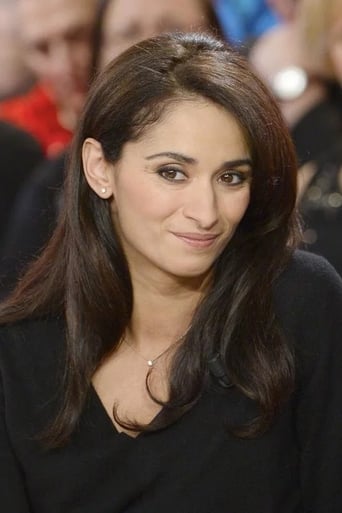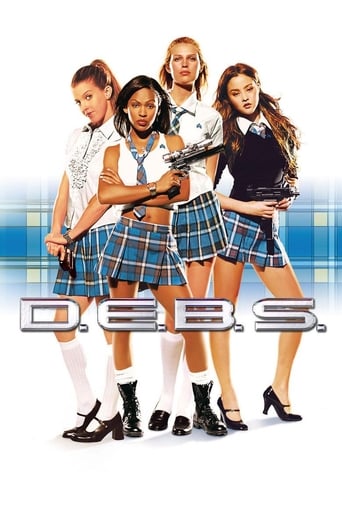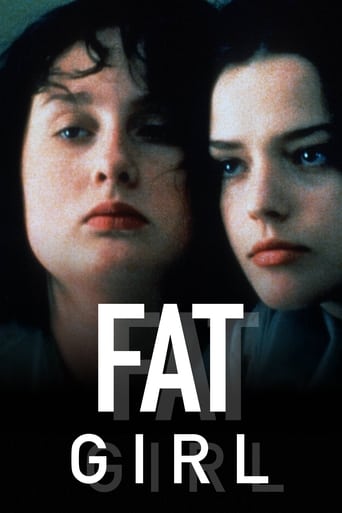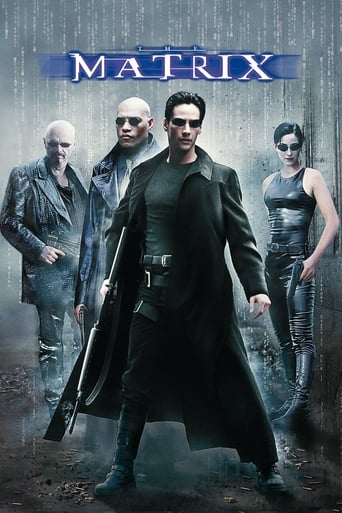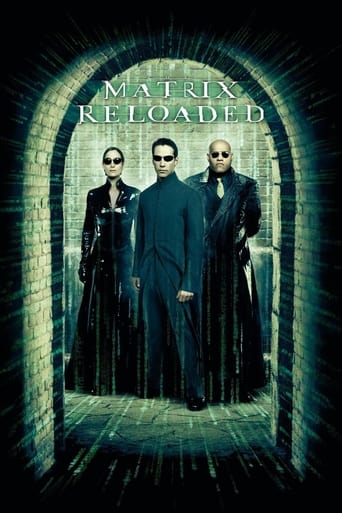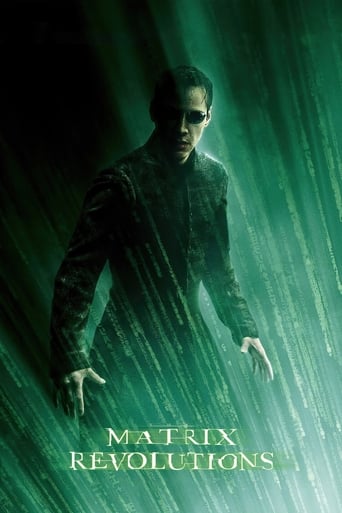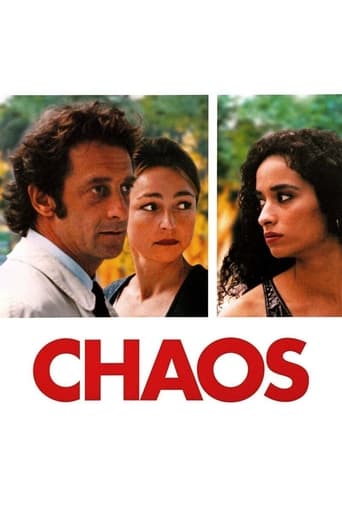

Chaos (2001)
A bourgeois couple, modern yet conventional. One night by accident, a young prostitute barges into their lives. Hounded down, beaten up, threatened, she will continue to struggle, with the help of a well off lady, first for her survival-her resurrection-then for her dignity and freedom. Stormy encounters for everyone involved.
Watch Trailer
Cast
Similar titles
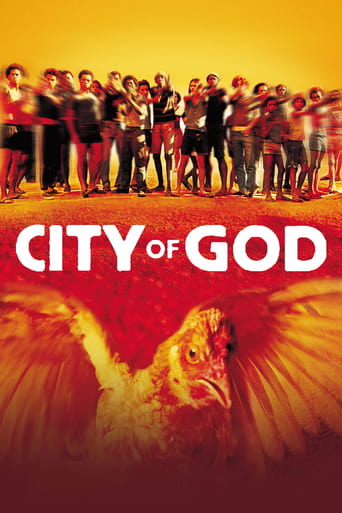


Reviews
Simply A Masterpiece
If you like to be scared, if you like to laugh, and if you like to learn a thing or two at the movies, this absolutely cannot be missed.
I didn’t really have many expectations going into the movie (good or bad), but I actually really enjoyed it. I really liked the characters and the banter between them.
All of these films share one commonality, that being a kind of emotional center that humanizes a cast of monsters.
"Chaos" is a modern melodrama with a feminist edge. As with old-fashioned melodramas, each character is either highly sympathetic or highly disagreeableand here, the two groups of characters are divided strictly along gender lines. On one side, there's Helene (Catherine Frot), a bourgeois empty-nester whose great capacity for love and devotion is stifled by her authoritarian husband and lazy son. And Malika/ Noemie (Rachida Brakni), a beautiful, extremely intelligent prostitute of Algerian descent. She has a heart of gold for her fellow women, and a heart of ice for the men who abused and enslaved her. The movie eventually becomes a lively, often funny tale of how Malika gets her revenge, aided by Helene.But all of the men in the movieHelene's husband and son, Malika's father, the older men who fall for Malika's tricksare cruel, foolish, and patriarchal, and just as unlikable as Malika's pimps. This black-and-white worldview, as well as the frequent melodramatic contrivances (e.g., Malika recovers too conveniently from life-threatening injuries), ultimately undermines the movie. "Chaos" wants to be a feel-good, pro-women film, but its mean- spirited attitude toward men leaves a nasty aftertaste. Yes, the heroines triumph in the end but they do this only by separating themselves from men. Thus, the film seems to say that men can never change, that heterosexual romance cannot exist, and that although women are powerful, they are not powerful enough to reform their men. It's a bleak conclusion.However, on the surface, the fast-paced "Chaos" is the opposite of a bleak movie. It rapidly shifts between social drama and black comedy, so much so that I wished for a little more time to stop and breathe. The story is exciting, even if based on mean-spirited attitudes (not only does the movie ridicule men, it also has a low opinion of young people, as shown by the scenes with Helene's son and his girlfriends).As a feminist, I wish that I liked "Chaos" better, but I was turned off by its overstuffed structure and cheap-looking digital video cinematography, as well as its extreme antipathy towards men. There has to be some way of making a feminist film without demonizing the other half of the human race.
The first thing that stands out in this movie is the performances by all the actors.The credit should of course go to the director but the cast is very well chosen and they all do more than justice to their roles.It is a story of a young Muslim girl in France, who rebels against her male dominated society and tries to become someone.She has to face many hard-ships and obstacles in the process though.The movie also showcases the life of a french family and their own struggle to come to terms with themselves and their life. all this is presented in a very humorous tone.The viewers will laugh at the right time,enjoy the humour but importantly at the same time , they will not miss the underlying irony of things. One never loses touch of the struggle and the tribulations of the characters involved.after a long time I have seen a movie, which unlike most movies dished out by the Hollywood studios these days, does'nt just concentrate either on the commercial aspect or is just made to satisfy the critics and do well at the Oscars. This movie just proves that with honest, dedicated work and the right(talented) people knowing , what they are doing, a Great movie can be made with a limited budget.I would recommend this to everyone who want some entertainment as well as not feel they have just wasted their 2 hours.
En route to a party, Paul (Vincent Lindon) and Helene (Catherine Frot) encounter a speed bump when a woman throws herself in front of their car, begging for help. Having learnt not to pick up hitchhikers, they watch helplessly as she is beaten unconscious by several men.Helene feels responsible for this stranger, whom she comes to know as Noemie, and spends much time with her at the hospital. But when she discovers that Noemie's life may be in danger, Helene sneaks her out of the hospital posing as a nurse.Taking her to her mother-in-law's country home to recover, she learns of Noemie's tragic story. Brought to France from Algeria by her father, she chooses a life of prostitution after her dad sold her down the river to an Algerian man.This movie tells me how prostitution works in France and its similarities in the prostitution that's been happening in our country.This is a funny and fast-paced movie. I would have enjoyed it more if I can only understand the French language.
It has been said that satire should be like a very sharp razor blade: you don't know you've been cut until you see the blood. The same thing can be said of movies with a social agenda: it's better if you don't see it coming, which makes it all the more effective when it's over. If only filmmakers that preach their social or political views had a better sense of knowing when to stop `preaching', and let the audience draw their own conclusions, we'd have more movies with positive social messages.Case in point is the film, `Chaos', by Coline Serreau, who presents a fairy tail story that celebrates, glorifies and idolizes the strength and perseverance of women in a male-dominated society. The main plot revolves around two women: Helene, an upper-middle class French woman, and Malika, a young prostitute. The two meet when Helene and her husband accidentally encounter Malika being violently attacked by a group of men. The couple witness this from inside their car, but the husband doesn't want to help or have anything to do with the girl, who's been left for dead. Helene, overwhelmed with guilt, decides to visits Malika in the hospital, against her husband's strict instructions. As Malika slowly regains consciousness, and her physical strength returns, the women grow closer, and the story behind the mysterious heroine unfolds. And, like a blooming flower, so does the magnitude of the story line, which becomes far too complicated to summarize here. (It's also far more involved than it needed to be for the plot or social commentary.)Suffice to say, the story is all about Malika's and all the female characters' struggles to find individuality and freedom from under the thumb of the men in their lives. But the film doesn't stop there - it also makes observations (and hence, commentary) about French society, Muslim cultures, and a variety of other aspects of modern life. Attempting to serve all these objectives, the film tends to meander from one character to another, and one political statement to another, so it can squeeze it all in. This ends up overcomplicating things to a minor degree, but in the end, the movie is really all about women and their plight, and the movie makes no excuses or apologies about that.For Helene, it's as simple as her leaving her good-for-nothing, ego-centric husband. For Malika, though, her first barrier is her patriarchic Muslim family, who stymied her attempts to educate herself or make a better life. Then it's her father, who tried to sell her to a man in Algeria for marriage. When she ran away just before her scheduled departure, she found herself under the influence of a pimp, who forced her into prostitution, drugged and raped her, and beat her relentlessly, over and over. Things get worse and worse for all the women in the film, major and minor characters alike, until things come to a head, when (surprise) all women come together and win, and all the men lose in a big, big way.The film's use of satire is exaggeration and extremes, but you don't necessarily see that in one character alone, but all the characters as a collective. All the men are evil, and all the women are glorified. This use of two-dimensional character portrayal gives away the otherwise obvious moral agenda of the film; it also draws attention to the unsophisticated satirical vehicles normally employed by much less experienced filmmakers. It's almost as though Serreau gets so lost in her own agenda that she forgets the true nature of cutting satire. When events develop so transparently and obviously, you can't help but know that this film is only trying to preach to the converted.Effective satire is about making acute and keen observations of real people, subtly leading us to the filmmaker's desired conclusions, all the while letting us think we got there on our own. We need to see at least one of the heroines lose because the sad reality is that not all women leave the men that subjugate them--we need to be reminded of that not just for the dose of reality for credibility's sake, but it accentuates the emotional impact of the victories of the women that do overcome their barriers. Similarly, one of the bad guys should be portrayed as changing his ways so as to draw more attention to those who don't. Serreau's problem is that she can't accept a character losing. This, in itself, compromises credibility. As Shakespeare once said, `thou doest protest too loudly.'There's no question that `Chaos' will win the hearts and minds of women who feel victimized, or who seek the camaraderie of seeing strong women win on screen. But it's almost sad to see them rally around what is essentially a vacuous film that doesn't carry the more cogent message it could have been so much more effective at giving. I guess it's my way of saying, `preaching to the converted isn't hard. Leave that to the amateurs.'


